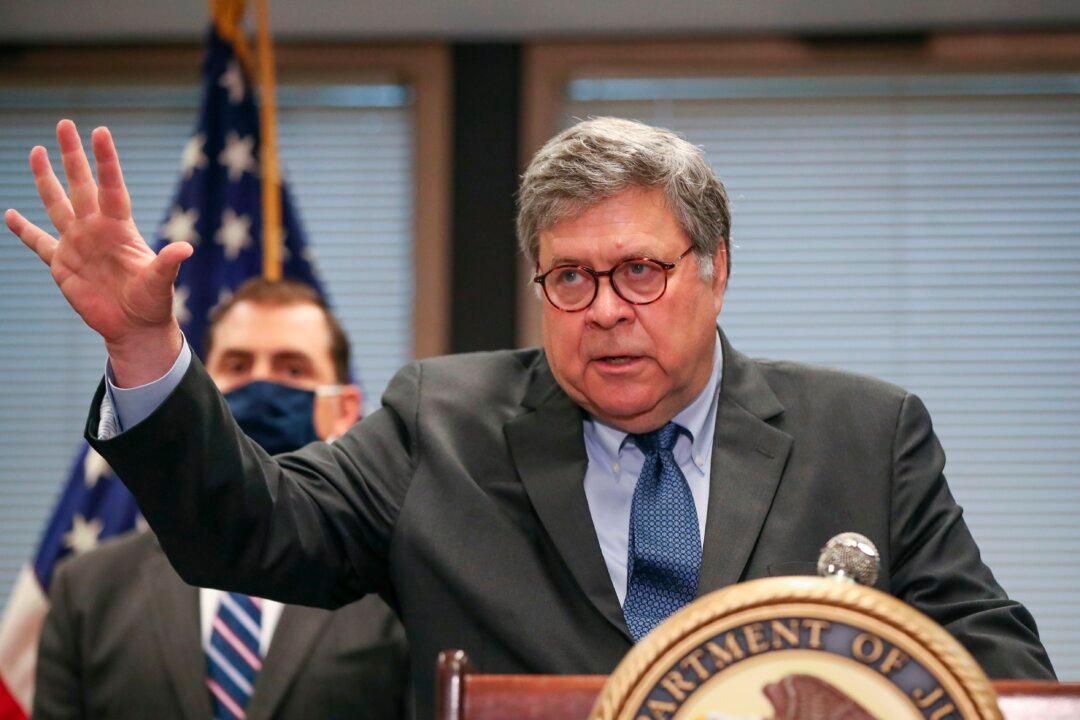Attorney General William Barr on Tuesday announced that 26 people have been charged with allegedly operating a drug trafficking ring in Milwaukee, including an alleged Mexican gang member who served as the ring’s leader.
The charges were made as part of Operation Legend, a federal initiative to drive down violent crime in major inner cities, which had provided assistance to the ring’s takedown.




